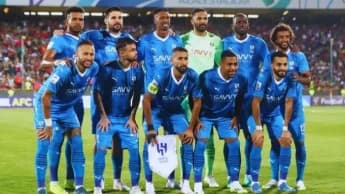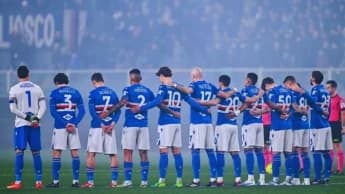Girona FC: A Journey Through Triumph and Resilience

Discover the rich history of Girona FC, a club that has transformed its fortunes through resilience, strategic partnerships, and a commitment to local talent, aspiring for greatness in Spanish football.
Founded on 23 July 1930, Girona Futbol Club has been a fundamental part of Catalan football for many years. Located in the charming city of Girona, the club reflects the determination and passion of a region devoted to the sport. Since its formation, Girona has transformed from a local entity into a formidable participant in Spanish football, most recently achieving a place in La Liga.
The club has faced numerous challenges, oscillating between the lower divisions of Spanish football for many years. Nevertheless, it has consistently demonstrated a resolve to overcome these difficulties, reflecting its strong cultural and sporting principles. The opening of Estadi Montilivi in 1970 created a dedicated home for Girona’s devoted supporters, establishing a venue that is deeply connected to the team’s identity.
The modern era of Girona has been greatly influenced by its partnership with the City Football Group, connecting the club to elite football entities worldwide and bringing innovative practices into its operations. This collaboration, along with the longstanding enthusiasm of Girona's fans, creates a seamless fusion of tradition and contemporary approaches. Culturally, Girona is deeply tied to Catalonia's rich football heritage, providing its supporters with a team that honors local roots while aiming for success on national and international stages.
Club Accomplishments
Girona’s initial significant achievement occurred in the 1935–36 season when they made their debut in the Segunda División. Although they narrowly missed the chance to be promoted to La Liga during that period, this accomplishment positioned them as a notable contender in Spanish football. The club's fortunes changed dramatically in the 21st century as Girona emerged from lower-tier obscurity. A series of successive promotions in the 2007–08 season allowed them to return to Segunda División after a 49-year hiatus. This revival signified the dawn of a new era that ultimately paved their way to La Liga.
The pinnacle of Girona's successes occurred during the 2016–17 season when they secured second place in the Segunda División, achieving promotion to La Liga for the very first time in their 87-year existence. This milestone was a momentous occasion celebrated throughout Catalonia, signifying their rise to the top tier of Spanish football. In 2017, Girona made headlines by defeating the then-reigning UEFA Champions League champions, Real Madrid, with a score of 2–1, a significant victory that enhanced their reputation on the global football stage. This achievement underscored the club's capability to compete with top-tier teams, even with limited financial resources.
Strengths & Challenges
One of Girona's greatest strengths is its solid organizational framework, enhanced by the strategic ownership of the City Football Group. This collaboration grants the club access to essential resources, cutting-edge analytics, and talent development methods, which enable Girona to maintain a competitive advantage. The team features a versatile squad that can adjust to different playing styles. The players exhibit significant tactical discipline, and the combination of youth and experience within Girona creates an energetic lineup capable of surprising their rivals. Their return to La Liga serves as a testament to their resilience and capacity to overcome challenges.
Nonetheless, Girona faces ongoing challenges due to its limited financial resources in comparison to other La Liga teams. The club finds it difficult to consistently attract high-caliber players, often relying on loan deals and budget-friendly signings. Enhancing squad depth is essential for maintaining competitiveness in the long run. Additionally, Girona has demonstrated weaknesses in coping with high-pressure scenarios, particularly against elite teams. Addressing these tactical deficiencies will be crucial for them as they strive to strengthen their position in La Liga.
Tactics & Style of Play
Under the guidance of City Football Group, Girona's style of play has undergone considerable transformation, focusing on a possession-oriented strategy with quick transitions. Their tactical framework frequently employs a high-pressing system aimed at unsettling opponents and taking advantage of turnovers. The midfield plays a crucial role in Girona's tactics, acting as a creative hub that connects defense and offense. Players demonstrate excellent technical skills, facilitating swift ball movement and generating scoring chances in confined areas. Additionally, Girona utilizes wing play effectively, with fullbacks often making overlapping runs to provide width and deliver crosses into the penalty area.
In defense, Girona maintains a compact formation to limit opponents' access to space in the central areas. The defensive line focuses on maintaining organization, striving to reduce mistakes and lessen their vulnerability to counterattacks. Although there are occasional errors, the team shows great resilience, often bouncing back swiftly after conceding a goal.
Set-pieces represent a significant strength for Girona, with the team demonstrating proficiency in capitalizing on dead-ball scenarios. This tactical aspect frequently becomes crucial in tightly contested matches, showcasing their meticulous attention to detail and preparation.
Memorable Matches
One of the most iconic matches in Girona's history took place on 29 October 2017, when they achieved a stunning 2–1 victory over Real Madrid. This moment was pivotal, demonstrating the club’s capacity to compete with Europe’s top teams, energizing supporters, and solidifying Girona’s standing in the competitive landscape. Additionally, the 2016–17 season in Segunda División marked a significant chapter for the club. Earning promotion to La Liga for the first time after many years of challenges represented a monumental milestone, heralding Girona’s emergence on the national football scene.
In 2008, Girona marked the end of a 49-year absence from the Segunda División by triumphing over Ceuta 1–0 in the promotion playoffs. This victory signified the start of their revival, laying the groundwork for future achievements and reigniting hope among their fans. The painful defeat against Lugo on the final matchday of the 2014–15 season stands as a pivotal moment in the club's history. Although it cost Girona an automatic promotion, the perseverance displayed in the following seasons emphasized the club’s resolve to reach its ambitions.
Looking Ahead
The partnership with City Football Group offers a robust basis for ongoing development. With access to resources, scouting networks, and innovative football strategies, Girona is positioned to remain competitive in La Liga while pursuing long-term achievements. A key focus is on cultivating local talent, as Girona invests in youth systems to foster the next generation of Catalan footballers. This approach reflects their dedication to regional identity while emphasizing sustainable advancement.
The club aims to position itself as a mid-table team in La Liga in the near future, steering clear of the relegation struggles that have marked past seasons. Key management priorities include enhancing squad depth and tackling defensive weaknesses. Looking further ahead, Girona seeks to attain European football qualifications and compete for domestic trophies. With a loyal fan base, robust organizational support, and a legacy of resilience, Girona FC has promising opportunities on the horizon.






